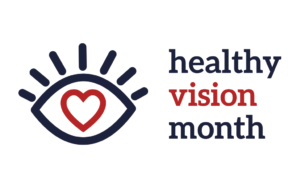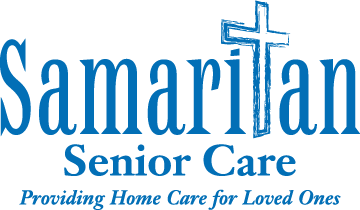Healthy Vision Month

Samaritan Senior Care, providing home care to the Treasure Valley, presents…
Each year the NIH recognizes July as Healthy Vision Month. This allows for opportunity to bring attention to eye health and its importance for people of all ages. Having healthy eyes and vision are as pertinent to overall health and well-being as are mental and physical health. Everyone should have open access to eye health care from optometrists and other eye care professionals.
This month also allows for time to learn how to best protect your vision and eye health. Getting regular eye exams (including eye dilatation) is important, but there are other factors that influence vision. Some ways to protect your vision and eye health include:
Receiving Regular Eye Exams
You might think your vision is fine or that your eyes are healthy, but visiting your eye care professional for a comprehensive dilated eye exam is the only way to really be sure. When it comes to common vision problems, some people don’t realize they could see better with glasses or contact lenses. In addition, many common eye diseases, such as glaucoma, diabetic eye disease, and age-related macular degeneration, often have no warning signs. A dilated eye exam is the only way to detect these diseases in their early stages.
During a comprehensive dilated eye exam, your eye care professional places drops in your eyes to dilate, or widen, the pupil to allow more light to enter the eye—the same way an open door lets more light into a dark room. This process enables your eye care professional to get a good look at the back of the eyes and examine them for any signs of damage or disease. Your eye care professional is the only one who can determine if your eyes are healthy and if you’re seeing your best.
Maintaining a Healthy Diet
You’ve heard that carrots are good for your eyes. But eating a diet rich in fruits and vegetables—particularly dark leafy greens, such as spinach, kale, or collard greens—is important for keeping your eyes healthy, too.i Research has also shown there are eye health benefits from eating fish high in omega-3 fatty acids, such as salmon, tuna, and halibut.
Being overweight or obese increases your risk of developing diabetes and other systemic conditions, which can lead to vision loss, such as diabetic eye disease or glaucoma. If you’re having trouble maintaining a healthy weight, talk to your doctor.
Maintain your blood sugar levels.90% of blindness caused by diabetes is preventable. Ask your health care team to help you set and reach goals to manage your blood sugar, blood pressure, and cholesterol—also known as the ABCs of diabetes.
- A1c: The goal set for many people is less than 7% for this blood test, but your doctor might set different goals for you.
- Blood pressure: High blood pressure causes heart disease. The goal is less than 140/90 mmHg for most people, but your doctor might set different goals for you.
- Cholesterol: LDL or “bad” cholesterol builds up and clogs your blood vessels. HDL or “good” cholesterol helps remove the “bad” cholesterol from your blood vessels. Ask what your cholesterol numbers should be.
Not Using Cigarettes or Other Tobacco and Nicotine Products
Smoking is as bad for your eyes as it is for the rest of your body. Research has linked smoking to an increased risk of developing age-related macular degeneration, cataract, and optic nerve damage, all of which can lead to blindness.
Wearing Sun Protection for the Eyes when Outdoors
Sunglasses are a great fashion accessory, but their most important job is to protect your eyes from the sun’s ultraviolet rays. When purchasing sunglasses, look for ones that block out 99 to 100 percent of both UV-A and UV-B radiation.
Wearing Protective Eyewear when Necessary
Wear protective eyewear when playing sports or doing activities around the home. Protective eyewear includes safety glasses and goggles, safety shields, and eye guards specially designed to provide the correct protection for the activity in which you’re engaged. Most protective eyewear lenses are made of polycarbonate, which is 10 times stronger than other plastics. Many eye care providers sell protective eyewear, as do some sporting goods stores. Employers are required to provide a safe work environment. When protective eyewear is required as a part of your job, make a habit of wearing the appropriate type at all times, and encourage your coworkers to do the same.
Learning About Your Family’s Eye Health History
Talk to your family members about their eye health history. It’s important to know if anyone has been diagnosed with an eye disease or condition, since many are hereditary. This information will help to determine if you’re at higher risk for developing an eye disease or condition.
Give Your Eyes a Rest
If you spend a lot of time at the computer or focusing on any one thing, you sometimes forget to blink and your eyes can get fatigued. Try the 20-20-20 rule: Every 20 minutes, look away about 20 feet in front of you for 20 seconds. This short exercise can help reduce eyestrain.
Clean Your Hands and Your Contact Lenses—Properly.
To avoid the risk of infection, always wash your hands thoroughly before putting in or taking out your contact lenses. Make sure to disinfect contact lenses as instructed and replace them as appropriate.
Following these simple guidelines can protect your eyes and vision and lead to a happier, healthier you.
Samaritan Senior Care is a locally owned Home Care provider serving the greater Boise and Meridian Area. We have a wonderful team of caregivers who are dedicated to providing the love and support clients need to stay safely in their home or apartment. Services include cooking, cleaning, companionship, personal care, etc., hourly up to 24-hr. Contact us today for a free consultation, we look forward to meeting you!
